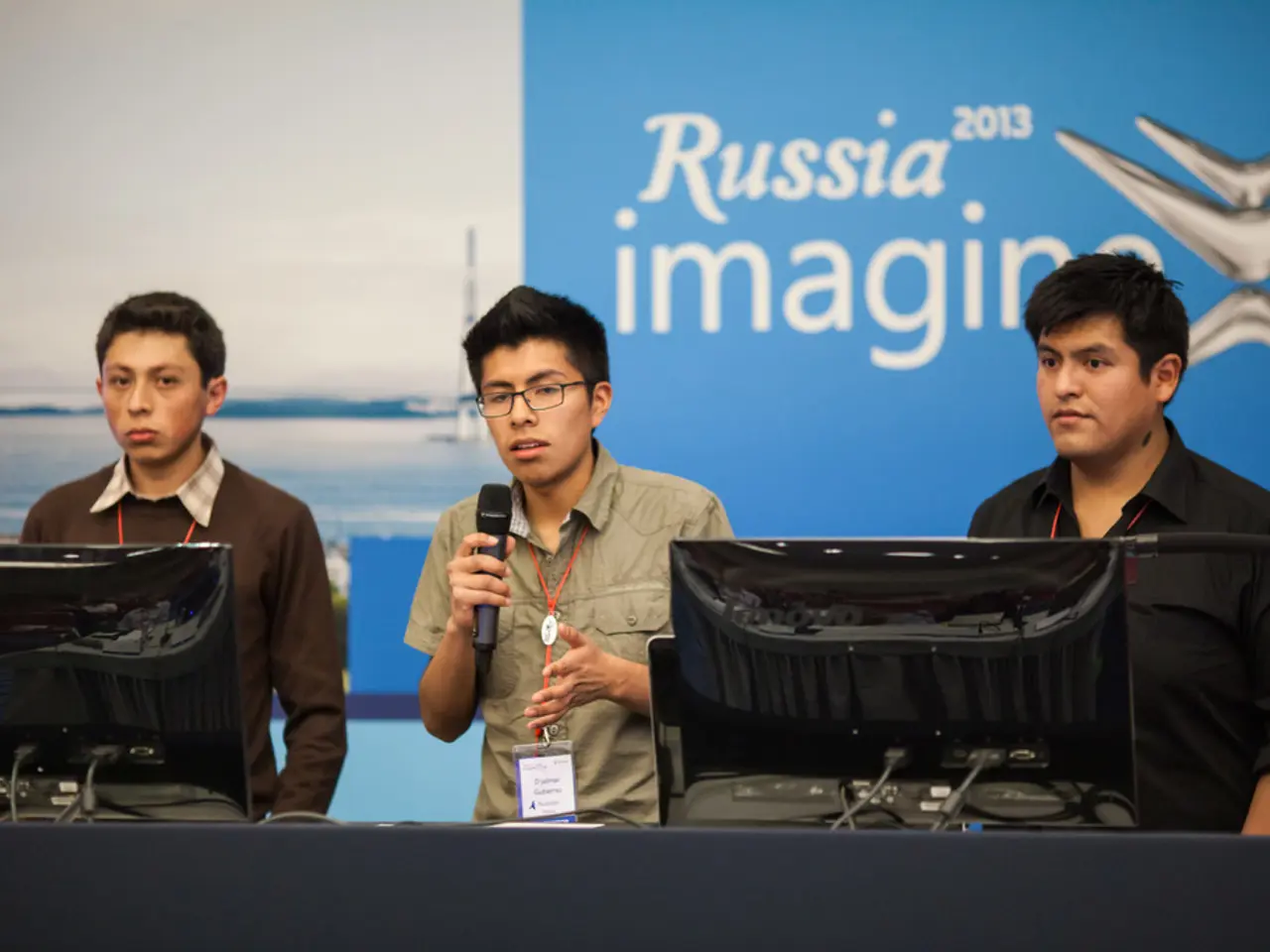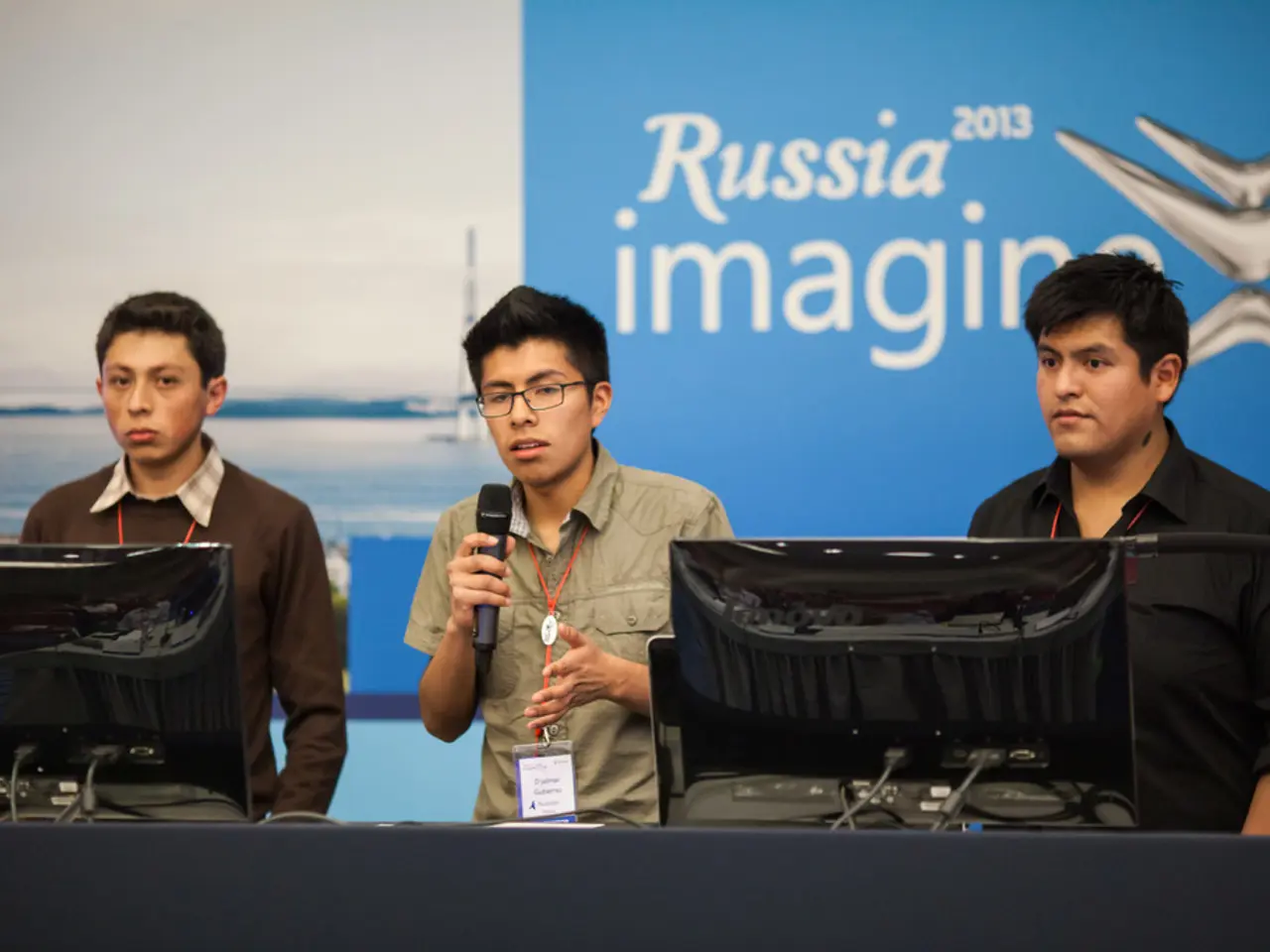Trump demands Intel CEO's dismissal amid claims of China affiliation
Senator Tom Cotton and other government officials have expressed serious concerns about Intel CEO Lip-Bu Tan's extensive connections with Chinese companies, particularly those with ties to the Chinese military. These concerns have led to public calls for Tan's resignation, including by former President Trump [1][2][3].
Tan, a naturalized U.S. citizen born in Malaysia, has invested in about 600 Chinese technology firms through his venture capital activities. Some of these firms have been blacklisted by the U.S. Commerce Department due to links with the Chinese military and human rights abuses [1]. Senator Cotton has specifically questioned Tan's past leadership of Cadence Design Systems, which was under scrutiny for selling trade secrets to China [3].
Intel, one of the most prolific foreign investors into AI and silicon startups in China through Intel Capital, opened an innovation hub in the city of Shenzhen, despite Washington's increasingly strict sanctions [4]. This move has added to the concerns about Intel's commitment to U.S. national security.
In response to the concerns, Tan met with President Trump to clarify his background and reaffirm Intel’s commitment to U.S. semiconductor independence and national security interests, highlighting Intel’s importance to the domestic chip manufacturing ecosystem supported by the CHIPS Act [2][3]. Following that meeting, Trump softened his stance publicly, though the controversy remains a focal point of debate around U.S.-China tech relations and the semiconductor supply chain [4].
Senator Cotton's letter also inquires about the awareness of these issues by Intel's board and questions if any measures were taken to address concerns about Tan's activities before his appointment [1]. It is unclear if any such measures were indeed taken.
The ongoing concern in America is about preventing Beijing and its military from gaining access to advanced technology, including the tools and expertise to make cutting-edge chips. This is particularly true in the context of the CHIPS and Science Act, which awarded Intel nearly $8 billion, the largest grant to a single company [5].
In light of these concerns, Intel's leaders are being questioned about whether they were aware of Cadence export violations before hiring Tan as CEO in March [1]. The call for resignation comes after a letter from Senator Tom Cotton, dated August 6 [6].
References: 1. The Hill 2. Reuters 3. CNN Business 4. Bloomberg 5. CNBC 6. The Hill
- Senator Tom Cotton and several government officials are worrying about Intel CEO Lip-Bu Tan's extensive ties with Chinese companies, especially those affiliated with the Chinese military, due to concerns about national security.
- The regulation and policy-and-legislation surrounding technology exports and foreign investments, particularly in the context of war-and-conflicts, are under scrutiny due to Tan's investments in about 600 Chinese technology firms through his venture capital activities.
- The general news and crime-and-justice sectors are reporting on the controversy surrounding Tan, whose past leadership of Cadence Design Systems was under investigation for potential trade secret sales to China.
- The concerns about Tan's connections to Chinese companies have highlighted the need for strict policies to ensure the security of the semiconductor supply chain, a vital topic under the CHIPS and Science Act.
- Tan's meeting with former President Trump to clarify his background and Intel’s commitment to U.S. semiconductor independence and national security interests has not completely dissipated the controversy, as the call for Tan's resignation persists with ongoing debate around U.S.-China tech relations.








